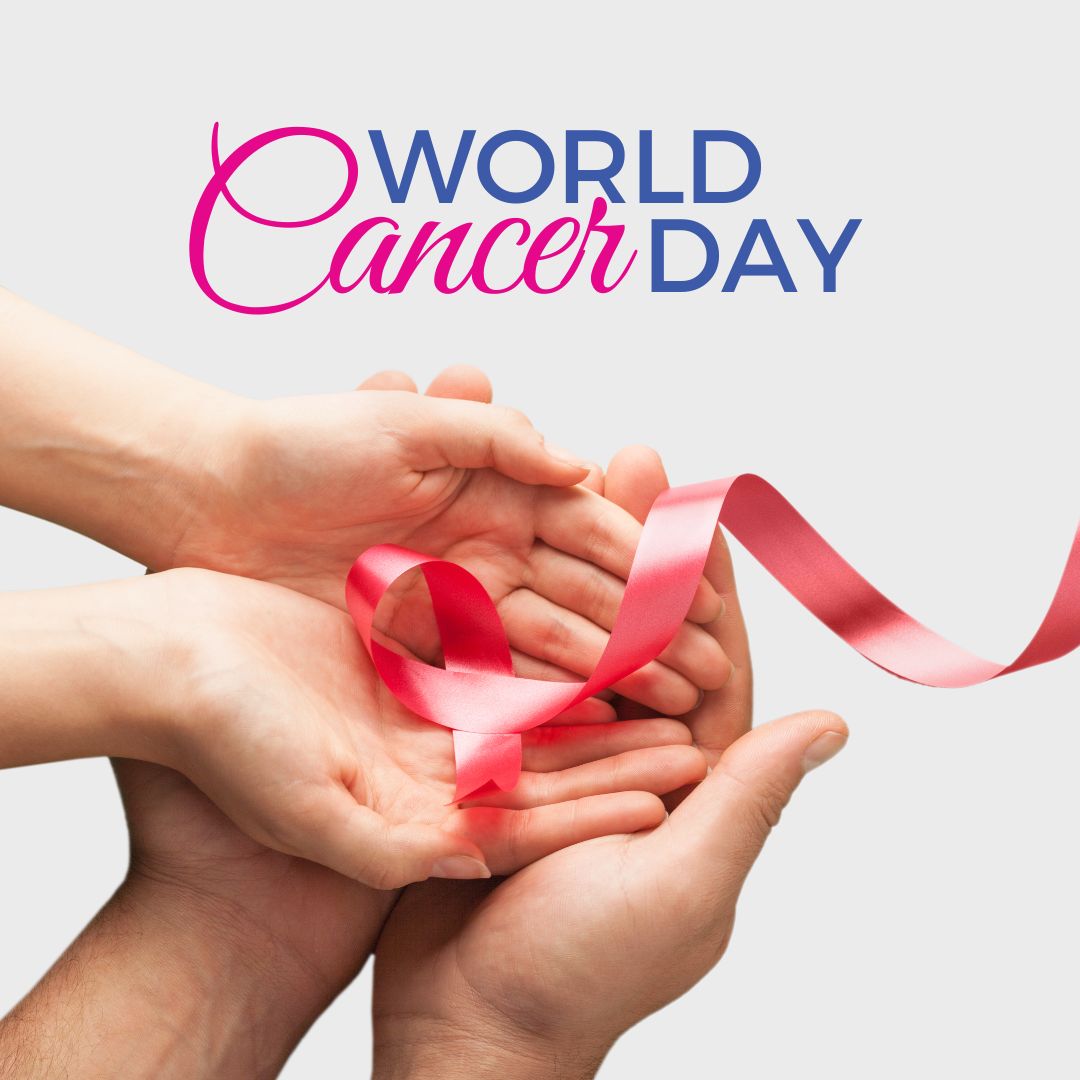What Is World Cancer Day About
World Cancer Day, observed annually on February 4th, is an international day dedicated to raising awareness of cancer and encouraging its prevention, detection, and treatment. This day was established by the Union for International Cancer Control (UICC) and is aimed at promoting various initiatives to fight cancer globally.
The Objectives Of World Cancer Day Include
- Raising Awareness – Educating the public about cancer, its symptoms, risk factors, and the importance of early detection.
- Advocacy – Encouraging governments and organizations to make cancer care a priority and to invest in research, health infrastructure, and access to care.
- Support and Empowerment – Providing support to cancer patients and survivors, and empowering individuals and communities to engage in activities that could reduce the risk of cancer.
- Challenge Misconceptions – Addressing myths and misconceptions about cancer that might lead to stigma and discrimination against patients and survivors.
Each year, World Cancer Day focuses on a specific theme to highlight different aspects and challenges of dealing with cancer. This day plays a crucial role in bringing the global community together in the fight against cancer.
World Cancer Day was created in 2000 at the World Summit Against Cancer in Paris. It was a response to the growing need for global collaboration on cancer awareness, education, advocacy, and research. The day is led by the Union for International Cancer Control (UICC).

How Does Cancer Affect Children
Cancer affects children differently than adults. Here’s a quick rundown
- Different Cancers – Kids get cancers like leukemia, brain tumors, and Wilms tumors, which are less common in adults.
- Tricky Diagnosis – General childhood illness symptoms can hide cancer, delaying diagnosis.
- Tough Treatments – Treatments like chemotherapy and radiation can have stronger, longer-lasting effects on a child’s growing body.
- Big Impact – Cancer can hurt a child’s development, emotions, and family life.
- Hope for the Future – Survival rates are generally higher for childhood cancers, and research is finding better treatments.
- Lifelong Care – Even after treatment, children may need care to manage their long-term effects.
Precautions To Save Children From Cancer
Prenatal care – Avoid harmful substances during pregnancy.
Healthy habits – Encourage a healthy diet, exercise, and limit exposure to toxins.
Vaccinations – Keep your child up-to-date on vaccinations.
Regular check-ups – Maintain regular pediatric appointments.
Be aware of family history and symptoms – If there’s a family history of cancer or your child has concerning symptoms, talk to a doctor.
Avoid secondhand smoke – Protect children from secondhand smoke exposure.
Early detection is key. Be vigilant, but remember some cancer signs resemble common illnesses.
How Is Cancer Affecting The Children Of Pakistan
Childhood cancer is a big problem in Pakistan, similar to other places, but with some unique challenges:
- Limited access to specialized care, especially in rural areas.
- High treatment costs can strain families and lead to treatment abandonment.
- Lack of awareness about symptoms and stigma around cancer can delay diagnosis.
- Fewer hospitals are equipped for childhood cancers and uneven distribution of care.
- More research is needed to understand childhood cancers in Pakistan.
- Support services for children and families are limited
Major Steps Health Department Of Pakistan Must Take To Save The Children Of Pakistan
To effectively address the challenge of childhood cancer in Pakistan, the health department and related governmental bodies must undertake a multi-faceted approach. Here are some major steps that can be taken:
- Increase access to care, especially in underserved areas.
- Raise public awareness about childhood cancer symptoms.
- Invest in better equipment, medicine supplies, and hospital facilities.
- Train doctors, nurses, and support staff in pediatric oncology.
- Develop a national cancer registry to track cases.
- Offer financial aid to families struggling to afford treatment.
- Partner with NGOs and international organizations for expertise and resources.
- Fund research into childhood cancers specific to Pakistan.
- Provide palliative care for children with advanced cancer.
- Implement public health strategies to reduce cancer risk factors.
- Strengthen vaccination programs against cancer-causing viruses.
- This will require collaboration between the government, healthcare providers, and NGOs.
Awareness Message for Parents on World Cancer Day
Dear Parents,
Let’s fight childhood cancer together! Early detection is key. Be aware of symptoms like weight loss, fevers, lumps, or pain. Take your child for regular check-ups and vaccinations. Promote healthy habits. Together, let’s support these brave children and advocate for better healthcare. You’re not alone.